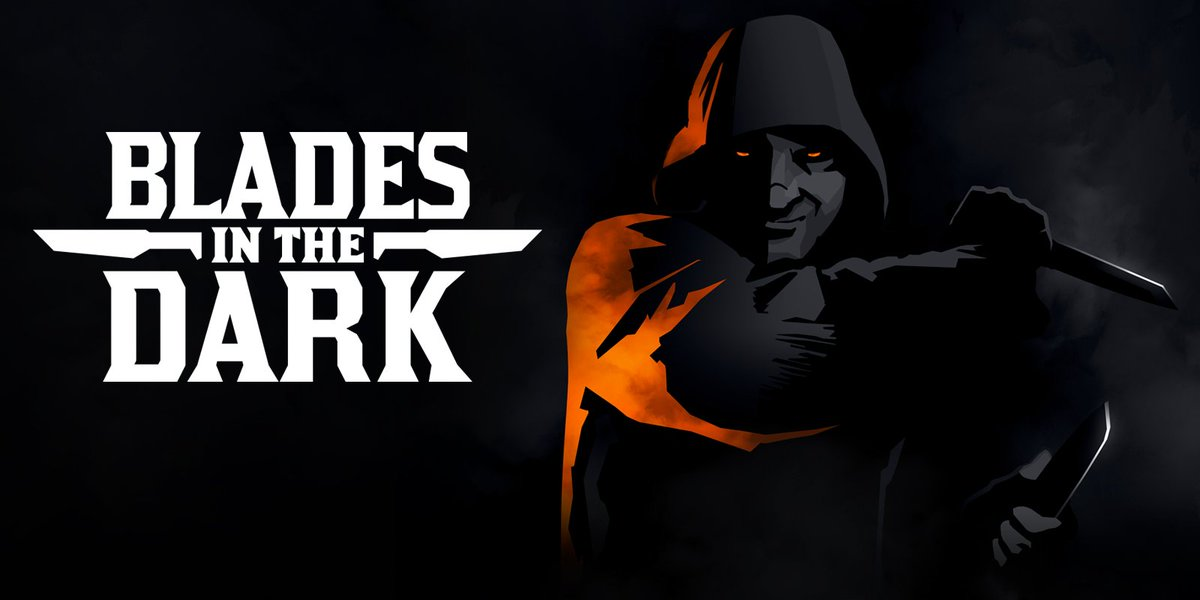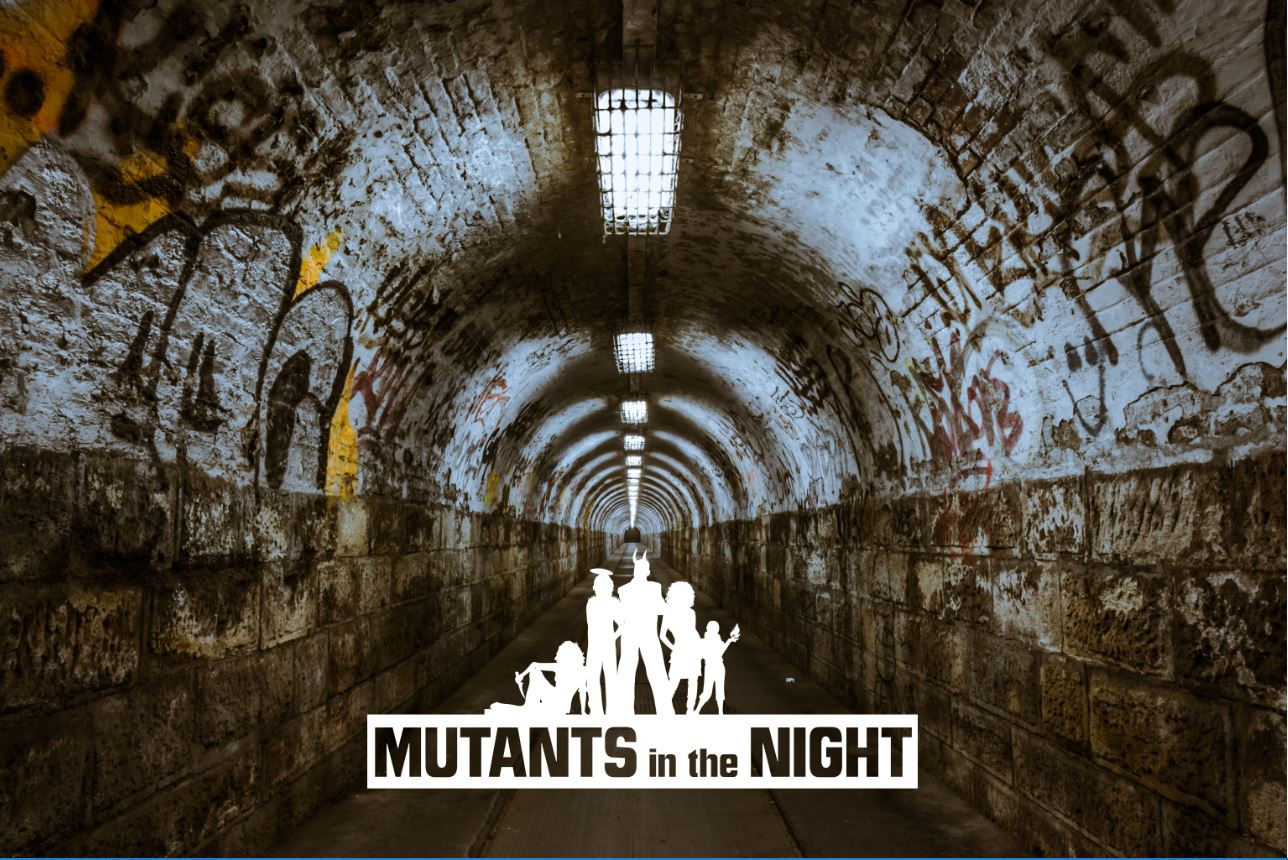Sometime in 2014, I found myself in a video chatroom with a guy named Austin Walker—who you might know as Waypoint’s Editor-in-Chief. The occasion was a game of Torchbearer, a roleplaying game which aimed to distill the old school D&D dungeon crawl into its essence, run by a mutual friend, who Austin knew in real life and I’d met online. During some downtime, I asked Austin if he was the guy who wrote that good blog post about about race in Animal Crossing. He confirmed he was, then asked me if I was the guy who wrote that equally good thing on games and labor in Jacobin, which I was. Then we set about playing some Torchbearer.
The story of how I met Austin in a moment of serendipity is presented here as a datapoint in the history of the maligned, misunderstood Google+. I met Bret, the gamemaster of that game of Torchbearer, on Google+, spurred by a shared interest in the stranger corners of the gaming world, where quirky mechanics and small presses combined to create magic. The platform we used to play was the video chat linked to Google+, Hangouts. And we weren’t alone; there were hundreds, thousands, of us, our use of Google+ revolving around our love of roleplaying games.
Videos by VICE
Google+ is closing on April 2nd, yet one more failed Google product for the pile. The platform grew steadily until it didn’t, unable to break Facebook’s stranglehold on the social media world. It succumbed, first, to the same thing roiling the video game industry in the wake of Fortnite: the belief that it’s not enough to be profitable and good if the top dog is making three times as much. The Google+ team started doing the sort of weird, pointless redesigns Google likes to do, engagement dropped, and the writing was on the wall—Google+ was due to close in August of 2019. When it broke last year that there was a massive security hole in Google+, which Google covered up, the close date was quickly moved up to April.
The shutdown may have disastrous effects on the roleplaying game community and designers. While the rest of the world seemed to overlook Google+, the RPG community made the platform its home. It’s not an exaggeration to say that there are games which wouldn’t have been made and success stories which would not exist without it. Now, people are mourning while scrambling to find a new place with the same vibrancy and foment, with not a small amount of freaking out about how the new, Google+-less world looks for design and sales.
The huge role Google+ played in smoothing over the rough spots of design and sales holds especially true for marginalized game designers and non-mainstream games. It’s in the realm of smaller, more introspective game design that Google+ perhaps helped the most, games like Rosenstrasse, a game about relationships between Jews and gentiles during the early days of Hitler’s Germany.
“Most important are the connections with collaboration partners that were made possible here,” says Moyra Turkington, co-designer of Rosenstrasse. “For example, while I have known [my writing partner] Jessica Hammer for longer than the Plus, we reconnected here after I had been offline for many years. Her insightfully thoughtful posts on Jewish ethics, philosophy, and culture convinced me to be brave and reach out to ask her to work on Rosenstrasse—a serious game with that has been transformational to us both in so many ways, and one that is doing interesting things for games in new dimensions – we are even showcasing it for the US Holocaust Memorial Museum educational staff.”

Apocalypse World is another game which saw its reach extended farther than it might otherwise have been because of Google+. Apocalypse World is, by now, not simply a game but a kind of universal system in the indie RPG world. Its mechanical approach to framing real life moments as dramatic “moves,” coupled with designer Vincent Baker’s willingness to enthusiastically make the system available to anyone, helped create a boom in unique, Apocalypse World-fueled games, most of which were tied to the game’s Google+ community. Dungeon World and Blades in the Dark are the big ones, but there are so many others which wouldn’t exist without getting switched on at Google+, from cyberpunk nail-biter The Sprawl to the Watership Down-esque The Warren to my own attempt, ACTION MOVIE WORLD.
The rise of streaming tabletop games also looks very different in a world without Google+. It’s tough to recall the age of ubiquitous streaming video, but the video chat of Hangouts was revolutionary when it hit the scene. It worked better than Skype, was easier to set up, and was open to plugin development.
One of those plugins was Tabletop Forge, a simple project which had built-in dice rolling and the ability to add map overlays. Using it in 2012 was like entering a strange world where it wasn’t a pain to play with distant friends. As my friends and I played, we saw more people stream games on YouTube (and eventually Twitch), coupled (importantly) with more people watching, an alert that there was a willing audience of people eager to follow along with other people playing RPGs. Tabletop Forge was eventually absorbed by Roll20, the most popular online RPG client. Even now, a significant portion of Roll20’s presentation and approach stem from those early, Google Hangouts days of Tabletop Forge, which in turn informs current streamed play models.
I asked my circles of RPG acquaintances what games and stories they’d remember from Google+, as well as what their worries were. Mostly they posted that their lives would be very different without it, and there was a vibe that was much more personal than if they were talking about Facebook. They wouldn’t be designers, as Turkington related, or they wouldn’t have made close friends. A couple wouldn’t be into RPGs at all. And they were worried that some games would have a tough time rebuilding what they have.

“Games I love that would never have made it? Blades in the Dark and Stars Without Number/Godbound/Sine Nomine Games probably would have made it, but maybe not as big,” says Dave Turner, a long-time user of the platform. ”They’re the two G+ game communities that spring to mind when I think, ‘Whose task in rebuilding their G+ community do I least envy?’”
It’s remarkable to use the word “rebuilding” in relation to Google+, the odd duck social media platform the rest of the world left for dead years ago, but it seemed custom made for the RPG world. Google+ still thrived there, where the dice clattered in virtual gaming rooms and discussions about what games should even do stretched long into the night. Now the community, across all types of games, is on the verge of dispersing. Rifling through my extended circles in the waning days of the site, people are tossing out all sorts of ideas.
There was a brief coalescence around MeWe, but nothing sustained. Right now, itch.io and The Gauntlet, a throwback to the days of forums, are looking like contenders. DC, the designer behind Mutants in the Night and a growing figure in the RPG community, is a big booster of both, with a particular eye toward itch.io as a new hub.

“Newer designers are already flocking to itch.io to set up shop, participate in game jams, and to explore future developments from the platform,” DC notes. “I’m excited to be a part of that space and to see a small sub-community plant their flag in itch.io’s sand. The Gauntlet will continue to be a hub for some of the more veteran players and GMs. But most designers don’t claim any space as TTRPG’s social media home, and I don’t see that changing any time soon.”
The sense that there’s no home for tabletop games after G+ is important. The Gauntlet’s forums are young and free, but as DC notes, some of the community building aspects of the site aren’t free. “The Gauntlet has been a staple in the TTRPG for years, and they have a reputation for being welcoming to people of color and other marginalized identities,” they say. “However, the Gauntlet keeps most of their community activities behind a paywall, which has kept interested parties away from their (free) forums. Without an inclusive opener to the rest of their community, The Gauntlet remains fairly exclusive in both their programs and in their outreach.”
In any event, it’s a forum, a format which feels like a dead letter in 2019, as Discourse is Facebook-ized and fragmented. Even Something Awful, a very different sort of forum but inarguably one of the most successful examples of the forum format, looks to be on its last legs, plus it’s not like everyone decided to go back to RPG.net. Itch.io, for its part, needs time and has to tailor itself to a very different group of people than its video game facing history provides a foundation for.
Nothing feels as complete as Google+ did. There doesn’t seem to be a readymade replacement for the way it was, in its headiest days, something for everyone, whether you were into design talk or just wanted a cool map for your next game. Wherever the community goes, something will be lost in the transition. We can only hope the next Google+ is as vibrant for the roleplayers as the first.
Editorial Note: Clarity was added to this post regarding which parts of The Gauntlet are available to free users.
